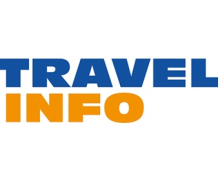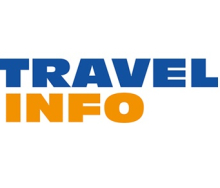The realities of going solo
BEING your own boss,
choosing your own hours,
working from the comfort
of your home (perhaps in your
slippers) and the possibility
of determining your income
– sound like the perfect job?
Independent Travel Consultants
(ITCs) and homeworkers say
these benefits don’t come
without some obstacles.
The most common, according
to the ITCs and Homeworkers
survey conducted by eTNW,
is the long hours. Mia Thiart
of All About Travel, says
clients expect you to be
open 24/7. Travel Counsellor
Jessica Cameron shares
her sentiment: “Sometimes,
because you work from home,
clients feel they can contact
you for nitty gritty things on
holidays or weekends.”
The survey found that more
than half of respondents work
longer hours as ITCs than
when they worked as full-time
employees, while 61% claim
to work more than 48 hours
per week.
“You work much harder when
you are your own boss,”
says Petroné Schoeman of
Travel Counsellors. She finds
it challenging to manage a
balance between work and
personal life.
Rishen Radhella of Travel
Experts adds that there is
a lot to do when running a
business and attending to
clients, which can be difficult
to manage along with family/
personal time. He says:
“There’s no sick leave in this
job, and if you go on holiday
don’t forget your laptop to
keep up with work.”
Heidi Niemand, One2travel,
agrees: “[There’s no] back-up
when you want time off; it
really takes a lot of planning
before you can take a vacation
and even then you check your
laptop and don’t really let
your guard down.” Meanwhile,
Hannelie Rotherham,
Sandman Travel, says office
hours are a thing of the past.
But although ITCs find the
hours demanding, most would
prefer this to the alternative.
The second most significant
concern ITCs have is the
lack of a stable income,
which is worrying during quiet
periods. Heidi says it can
be tricky when your salary
from month to month can be
unpredictable, while Deanne
Hunter, of Deanne Hunter
Travel, says in slow months
ITCs have to make sure they
have sufficient funds to cover
their costs. “It is challenging
when you do not have a good
month. Your pay cheque is
never guaranteed,” adds
Petroné.
When business is slow, it’s
up to the agents to find new
business, another part of
being an independent many
struggle with. Journey With
Jess owner, Jessica Solomon,
says: “I am finding it a bit of
a challenge generating new
business. I also find that
clients seem to bounce my
quotations off big corporate
brands a lot, which becomes
frustrating.”
According to Gillian Gerber,
Timeless Travel Solutions,
competing with the bigger
brands is hard. One reason
is that consumers and
corporates alike tend to trust
brands they know, and larger
travel corporations have big
budgets for marketing and
advertising campaigns.
“I don’t have the marketing
teams that big companies
such as Pentravel and
Flight Centre have,” says
one anonymous survey
respondent. Celine van Enter,
ICE Travel Solutions, adds
that it is difficult to offer the
most competitive deals on
the market without cutting
into your commission, while
Jessica Cameron, Travel
Counsellors, says ITCs miss
out on walk-in clientele.
According to a number of
independents, signing up
a corporate client can be
hard for other reasons. One
example provided by Julia
Dijkhuis, MD Travel, is that
ITCs and homeworkers have
limited back-up, making it
almost impossible to go after
bigger corporate clients.
“When you run your own
business, there will be
sacrifices that need to be
made, however, the rewards
far outweigh these,” says
Tammy Hunt, md of eTravel.
She explains that eTravel’s
model is one in which the host
company takes care of all the
travel-related administration,
accounting, commercial and
other functions to free up the
consultant.
She adds: “Everyone
deserves and should take
time off to recharge batteries
and be ready to tackle the
year ahead before the next
holiday. For this reason,
eTravel has a buddy system
in place, whereby like-minded
individuals assist each other
and look after each other’s
clients when on leave.” eTravel
also has platforms where
ITCs can bounce ideas off
each other and organises gettogethers
with supplier reps.
As for finding new business,
says Tammy: “When an ITC
has decided to take the bold
and exciting step of becoming
responsible for their income,
they too need to step out of
their comfort zone, attend
functions, network and hand
out business cards, which we
believe is still the best form of
advertising.
As an ITC you cannot wait
for the business to fall into
your lap or expect your host
company to do this for you.
However, eTravel can and
will go with the ITC to do
any presentation around the
country and assist in winning
the client over – just get a foot
in the door and
we will help and
guide you with
the rest!”
Jo Fraser,
Club Travel
franchise director,
comments: “Club
operates a very
caring family
culture and
helps our ITCs
overcome these
challenges by
hosting regular
get-togethers
as well as our
annual indaba,
which gives
them access
to a number of
suppliers and
is a platform to
interact with other
ITCs and buddy
up.”
She adds that
Club Travel offers
webinars to keep
ITCs updated with product
knowledge. “An ITC never
needs to feel alone,” she
adds.
TAG, says head of sales,
Kim Parker, creates a
support environment for its
ITCs, including business
management through access
to its management team with
a dedicated ITC manager, ITC
workshops and networking,
and support services ranging
from finance to sales.
Mladen Lukic, gm of Travel
Counsellors SA, believes the
challenges ITCs face are not
that different from those of
mainstream agents. “The
biggest challenge is that they
operate in an economy that is
strained and, as technology
has improved, the purchasing
habits of customers have
changed. As technology makes
in-roads, there is pressure for
any travel agent to maintain
relevance to the customer,”
he says.
Trouble ahead
But, Mladen says a
significant challenge
that the whole industry
hasn’t considered is the
segregation of product
access.
For example, a number
of airlines are removing
products from the GDS in
favour of the NDC.
“That is going to be a
game changer in a very
short space of time and I
feel that very few people
who operate in an ITC
space are looking at it. They
are relying on their host
companies to take care
of that, but we’ve seen,
from recent experiences
– for example, the latest
compliance to PCI-DSS –
that many ITCs assume the
host company is going to
make provision
for it, but the
nature of the
relationship is
such that they
don’t.
“This is
probably the
most significant
challenge ITCs
are going to
have to deal
with and face
very quickly,” he
explains.
According
to Mladen,
while Travel
Counsellors is a
full-service host
company, the
most common
ITC model on
the market is
the complete
opposite –
a non-Iata
ticketing
agreement
where an ITC acts on behalf
of the host company but
there is no company-tocompany
support process.
“If, for example, the ITC is
required to execute a client
request where the airline
inventory is outside of the
GDS, the question is, will a
non-Iata ticketing agreement
allow them that access and,
if so, at what cost?
“Are they going to have
the situation where they
won’t be able to service
a percentage of clients
because they don’t have
access to products, or
perhaps they have access
but at a differentiated
cost. This situation didn’t
exist last year, and today
it is still manageable, but
it’s a clear intention that
product owners don’t want a
ubiquitous relationship.
“They want a one-on-one
relationship with whoever is
going to service the clients.”
Pros and cons of independence
Survey respondents detail
the benefits and challenges
of being your own boss.
Pros:
Flexible working hours
Working from home (or any
other location)
Being rewarded for the
effort you put in
More time with family
Working your own way
No monthly targets
Saving time and petrol by
not having to sit in traffic
No salaries to pay
Writing your own salary
cheque
Developing valuable
relationships with clients
Not being tied to one
supplier or consortium
Can decide to go on an
educational or not
Cons:
Long hours/being available
24/7/365
Unstable income
Competing with larger
consortiums
No support when on leave
or out of office
Difficult to stay motivated
and/or focused
No colleagues for
assistance, advice and/or
company
Small marketing budget,
building own brand
Finding new business
Time management
Administration, accounting,
BEE compliance
Ignored by suppliers and/or
tourism boards
Con artists tarnish
reputation of ITCs.
ITC climate now at its best
Thanks to advances in
technology and changing
perception about working
remotely, host companies
agree that there has never
been a better time to be an
ITC.
“Technology is the single
biggest reason being an
ITC now is easier than in
the past,” says TAG’s Kim
Parker. ITCs can work from
anywhere and deliver an
exceptional service.
Kim adds that corporate
clients are also looking
for an alternative to the
traditional TMC, “some
preferring a hands-on service
from a person they know
and trust, a service that
is delivered by the owner
of the business, who can
build close relationships
with the travellers and travel
bookers”.
Garth Wolff, ceo of eTravel,
says the market is geared
for ITCs now. In addition to
technology, customers are
familiar with the concept of
the ITC.
Karen Donkin, marketing
& consulting, SWG, says
technology and SWG’s
constant IT development
gives ITCs access to
specials, suppliers and
online booking systems at
the click of a button. “You
can work from anywhere, any
time and at your own pace.
This offers you
the flexibility to
work when you
want and at
the same time
offering you the
support of a big
organisation.”
Franz Von
Wielligh, gm
of XL Flight
Specials,
agrees that
technology
has made it
easier for an
ITC/ITA to operate. “The XL
Group launched a booking
system that consolidates
the agent’s workflow into
one platform. The system
includes dynamic packaging,
automated quoting and
booking functionality, a
payment gateway, creation of
a state-of-the-art website and
mobile app for the ITC/ITC
and much more,” he says.
Michelle Bullmore,
marketing manager &
recruitment for Travel
Counsellors SA, says many
customers don’t have
time to organise holidays
during traditional working
hours, so giving them the
opportunity to call a Travel
Counsellor in the evening is
something many are looking
at these days. She adds
that technology has indeed
made it possible to work
from anywhere
so that
consultants
are able to
juggle things
that are
important to
them, like
their families,
and still be in
communication
via their
smartphones.
Mladen
Lukic of Travel
Counsellors
SA, says while there is
a huge difference in the
technology available today,
it’s not necessarily the
reason that ITCs are in a
better position now. “The
biggest difference is the
understanding from the
public. I’ve heard that up to
a third of travel professionals
operate as some form of
independent,” he says. This
has levelled the playing fields
to a large extent, even for
corporate travel business.
“We certainly see our ability
to compete at every level
is better now than in 2007.
There is no customer base
that a Travel Counsellor can’t
access. We have anything
from multinationals to
individuals wanting to go to
Knysna for a long weekend.
We didn’t have the same
ability 11 years ago.”
Money is the motivation
WHILE many ITCs and homeworkers
share their concern about a stable,
guaranteed salary every month, one
of the drawcards host companies use
to attract consultants is the promise
of better earning potential. But is this
the reality?
Not for everyone. According to
compensation platform Payscale, the
average salary of a travel agent in
South Africa is around R9 650 per
month, with the highest being just
over R20 000 per month. Some 23%
of respondents in eTNW’s ITCs and
Homeworkers survey said they earned
less than R20 000 per month.
However, around 21% claimed to
earn more than R40 000 per month.
eTravel’s Tammy Hunt adds that
overheads are next to nothing when
you’re linked to a host company that
absorbs the operational fulfilment
costs. “A senior consultant who
generates R700 000 to R1,4 million
in turnover per month to earn a
senior’s salary can do so (and in
some instances take home more) on
merely R300 000 turnover when an
eTravel ITC,” she says.
Jo Fraser of Club Travel, says
agents have better earning potential
as ITCs if they choose their partner
correctly and “don’t give away 30%-
40% of their hard-earned income for
services they often don’t want or
need”.
Rishen Radhella of Travel Experts,
says the factor that drew him to the
independent route was additional
income. “Your income fluctuates but
is definitely more than when you were
employed as a senior consultant,”
says Petroné Schoeman of Travel
Counsellors.
Another Travel Counsellor, Angela
Symons, says she earns “much
more” now while Julia Dijkhuis,
MD Travel, says the harder you work,
the higher the earning potential.
Karen Hoard of Karen Hoard Travel,
points out: “You reap the rewards
for your effort instead of making
someone else (the agency) richer.”
Karen Donkin of SWG, says ITCs
are flexible with pricing and more
willing to sell and venture out to see
new, upcoming products, which allows
for wider product diversification and
the ability to grow their client base.
According to Kim Parker of TAG,
the ITC is in complete control of their
earning potential. “The harder you
work, the more you will earn. If you
are driven to succeed, you will have
endless earning potential.”
Travel Counsellors, says Mladen
Lukic, should earn “significantly
more” than the best salary
package offered within their level of
experience. “Any Travel Counsellor
earning less than the highest salary
for their status has not reached their
potential.
“Earning multiples of what they
would in a mainstream agency has
to be the motivation; if you’re just
earning what you’ve been paid by
somebody else, you don’t really have
a reason to go out and work on your
own,” he adds.
Managing the ups and downs
Almost half (48%) of survey
respondents were able to start
earning sufficient income immediately
on becoming ITCs, while it took 27%
from one to two years to reach selfsufficiency.
Only a handful of agents
reported they were still not earning
enough to support themselves.
While earnings begin to flow in the
early stages, maintaining this takes
careful planning. One agent who
prefers to remain anonymous calls
managing a fluctuating income “a
struggle”, while another is in debt.
One option is to use a financial
adviser, says another.
Julia, who handles leisure travel in
the main, admits that fluctuations
can be quite challenging but she sets
aside funds in a savings account for
slower months.
Heidi Niemand, One2travel, keeps
three months’ salary in a kitty while
Hannelie Rotherham, Sandman
Travel, has a partner who also helps
with the household income. “But I
use what I need for my share and the
rest I save up for the months that
sales are really low,” she says.
Karen Hoard pays herself a set
salary every month. “If I have an
extra good month, the money is put
aside for the odd bad month or used
as a 13th cheque/bonus,” she says.
Elzanne Richter, All About Travel,
says not all profits are taken out of
the business. “We keep 20% in the
business for running costs."
"Play fair, suppliers!- ITCs
THE number of agents going
the ITC route is growing, but
some feel ignored by suppliers
while others feel that staff
working for large retail brands
get preferential treatment.
“I noticed that a lot of
airlines offer lower corporate
fares to ‘normal’ consortiums
than to ITCs, even though a lot
of experienced travel agents
choose the ITC option,” says
Cecilia Roux, Crosspoint Travel
(eTravel).
One independent consultant
who chooses to remain
anonymous says: “Hotel
chains, with a few exceptions,
all favour consortiums above
ITCs, as do most airlines. The
same is said of educationals
for most destinations.”
Travel Counsellor Tanya
Edwards finds this incredibly
frustrating. “Why make big
businesses richer? Why not
help independent ITCs sell
your product and therefore
help them to also benefit and
possibly give the client even
better service?”
However, Petroné Schoeman
of Travel Counsellors, says:
“ITCs also have access to
preferential rates. As the
consortium becomes bigger,
our buying power is getting
better and better.”
“eTravel has great negotiated
rates, so we feel we are
competitive,” says Joanna
Hutchison, Tidal Travel
(eTravel).
According to Karen Donkin
of SWG, if ITCs are members
of a well-structured and
professional travel consortium,
the deals signed with suppliers
should be passed on.
Kim Parker of TAG, says all
the group’s ITCs have access
to the same supplier deals
as its traditional, full-time
agents. “Our ITCs have an
enormous benefit when it
comes to our supplier deals
and relationships in that they
have direct access to both. We
encourage them to understand
the deals in order to add value
to their clients.”
Franz Von Wielligh of Flight
Specials, says: “Our ITCs/
ITAs have full access to
our supplier deals. We also
recently launched a central
ticketing unit that provides for
a ‘ticket only’ option. Here the
ITC/ITA can still operate purely
independently but with access
to some of our fantastic airline
deals.” He says if an ITC is
truly independent, it could
be a challenge for them to
have access to some supplier
deals.
Making time for ITCs
When it comes to support
from suppliers, ITCs and
homeworkers who responded
to eTNW’s survey have
very mixed opinions and
experiences. Kaamini Reddy,
Frozenlake Travel Co, feels
suppliers prefer bigger
companies and don’t provide
great service to ITCs.
An ITC operating out of the
Eastern Cape says: “Some
suppliers don’t really seem to
worry too much about the ITC.
When you work from home
you very seldom see a rep,
which isn’t always a bad thing,
but you also don’t always
know who to contact when
you are having a crisis and
need assistance with a certain
supplier’s product.”
Nic Vlok, acting ceo of
Mango, says most of the
carrier’s sales are direct, so
it doesn’t specifically engage
with ITCs. “I would imagine
that it will be very difficult
for a sales force to visit all
home-based agents or ITCs
and newsletter communication
would be a cost-effective way
to reach them,” he adds.
Nicolene Stjepanovis, Travel
Matters, says a negative
aspect of being a home-based
ITC is that she is distanced
from airline suppliers
particularly, which don’t call
on those working from home.
“They do call on the head
office though.”
On the contrary, Julie
Morrison, Travel Trio, says
agents who have built personal
relationships with suppliers
over the years and who
supported them prior to their
ITC days are looked after by
these suppliers.
Hunter Travel, says: “Suppliers
are starting to realise that ITCs
make up a big portion of sales
and, as such, are going out
and hosting workshops and
the like, specifically designed
for ITCs.” But she adds that
airlines only deal with large
consortiums so it’s important
to belong to a “good one”.
Jessica Solomon, Journey
With Jess, says she has a
stronger relationship with
suppliers now than when she
worked in a branch. Travel
Counsellor Angela Symons
says the same, and that this
is due to her now knowing the
relevant personnel personally,
rather than being part of an
agency.
“I’ve always received the
same attention working for
a consortium as I do being
an ITC,” says Cecilia Roux,
Crosspoint Travel (eTravel).
She adds that she sells a
lot more through suppliers
as an ITC than she used to
in a travel office as she has
more freedom to choose the
supplier.
Karen says all preferred
supplier reps do try to
make regular contact via
appointment or telephone call
to ITCs. “We also host regular
product training at our offices
in Durban and Johannesburg,
to which the ITCs are invited
to attend.” She adds that
SWG has a sales team on the
ground that is educated on all
travel products to assist ITCs
when necessary.
In their defence
Gary van der Walt,
national travel
partner manager,
Avis Budget Rent
a Car SA, says
the company
remains intent on
continuing to be
supportive of the
ITC model, and
gives ITCs access
to a worldwide
account, dedicated
Avis assigned
numbers to direct
commissions,
training, specialised travel
sales team, call centre and
GDS help desk, ClubRed
membership and dedicated
microsites.
“We do engage in workshops
with ITCs and do have
scheduled visits where
requested. Many of our
ClubRed members are ITCs
and this platform is ideal
to support ITCs. We will be
enhancing our key account
management service to ITCs
in the coming months,”
says Gary.
“We don’t usually visit
ITCs who work from home
unless we are certain we
are not imposing on their
personal space,” says Simmy
Micheli, manager – sales and
marketing, Travel Insurance
Consultants (TIC). She says TIC
started suITCase sessions a
few years ago to connect with
ITCs in neighbouring suburbs
around SA and host breakfast
training sessions regularly.
“In addition, we
communicate
important
information to the
head office and
this is distributed
accordingly,” adds
Simmy.
Luane
Lavery, brand
communication
manager at British
Airways and kulula.
com,
says the airline’s
approach to
engage with ITCs
is no different to the way it
would deal with traditional
consultants. But, she adds:
“Our account management
team don’t call on all the
home-based ITCs, but we
will call on them if they have
specific requirements that
need face-to-face interaction.
We communicate telephonically
and also by means of Travel
Chats. We also rely on the
host travel companies to
distribute relevant information
centrally.”
Janine Pretorius, owner of
Encore Cruises says: “We do
not have any main differences
in the way we engage with ITCs
versus traditional agents. Our
ITCs and homeworkers are
included in our events around
the country.”
Contractual concerns
Mladen Lukic, gm of Travel
Counsellors SA, says
traditionally, suppliers wanted
to deal with partners who were
authoritative
enough to enter
into commercial
agreements
in which both
parties had
responsibilities.
With ITCs,
the process
has become
complex.
“Very often, but
not with Travel
Counsellors,
suppliers are
dealing with a
representative
from the consortium rather
than the actual users,
which is making suppliers
uncomfortable. They are
contracting with a consortium
who is then going to syndicate
that contract to somebody
else [i.e. an ITC] but will
take no responsibility for
performance. In my view, when
a travel company engages with
a supplier they don’t speak
on behalf of their ITCs, they
speak on behalf of their main
business, but the ITC is one of
the benefactors.”
Mladen says suppliers are
justifiably nervous as this
protects the host company
should the ITC default. “At
Travel Counsellors, we not
only represent our Travel
Counsellors, we act on behalf
of them. Every commercial
agreement that I sign, I
take full responsibility for.
The supplier knows that the
behaviour and responsibility of
every Travel Counsellor is going
to be the same.”
Default
According to Mladen, in
most fraud situations, it’s
the supplier that is affected
first. “If I issue tickets but
don’t pay the airline and the
client arrives at the airport,
the supplier is the first one
embarrassed by it and they
are becoming increasingly
less tolerant of that, which
is a good thing. There has
been too much space for host
companies to take the good
but not the bad.
“If you are going to syndicate
any commercial agreement,
any host company must be
compelled to take 100%
responsibility for it. That will
instantly remove any reason
for a supplier to feel nervous
about dealing with ITCs, but it
comes at a great cost and a
lot of host companies aren’t
prepared to do that,” he says.
“eTravel always takes
each case on an ad hoc
basis and, depending on the
circumstances, will often pay
a portion of the debt or costs
with the ITC,” says ceo, Garth
Wolff. eTravel md, Tammy
Hunt, believes the reason
most ITCs default is because
they struggle with
managing cash
and not because
they have devious
intentions. She
says the cash
belongs to
suppliers and
not all to the
ITCs, but some
overspend and
eventually find
themselves in a
mess that leads
to “unimaginable
transactions” to
try to keep their
heads above water.
“eTravel doesn’t allow any
ITC to manage their clients’
funds and all funds are paid
into eTravel’s account prior
to any transaction being
processed, thereby protecting
the ITC, client, supplier and us.
Naturally, a devious person will
always find a loophole and, in
these instances, we take each
situation on an ad hoc basis.
However, we have never, in 19
years, let a client feel the brunt
of the bad decisions made by
ITCs and we have over time
collected those funds back
from the ITCs 90% of the
time,” says Tammy.
Club Travel, says Jo
Fraser, does not take any
responsibility should an
ITC default as “ITCs are a
standalone business”.
Kim says TAG manages the
ITC relationship very closely
and will take action to assist
the ITC before a default
situation occurs, but ultimately
the responsibility lies with
the ITC.
FlightSiteAgent (FSA) is
part of the Club Travel group,
explains md, Rian Bornman,
which means all consortium
deals are made available to its
agents.
“FSA is a ticketing platform
that enables the sale of valid
airfare, hotel and bus tickets.
We use a unique pre-paid
system that means agents
top up their online wallets with
the traveller funds, which is
set off against the cost of the
travel and the balance is the
commissions that are cashed
out when needed. This means
no credit is extended and
agents are not in a position to
default.”
At SWG, Karen says both the
ITC and consortium go through
an investigation process.
“Consortiums act in the
best interest of their ITCs by
developing and negotiating the
best deals with suppliers. At
the same time, the consortium
cannot be held responsible for
the fault of a supplier but will
ensure that the ITC is handled
properly by assisting the ITC
with any issues experienced
by a supplier should the need
arise.”
It's not for everyone
FOR some
consortiums, an
ITC needs to be a
senior consultant
who can provide
exceptional
service and
handle any
situation, thanks
to previous
experience as a
full-time agent
working for a
retail brand. This
could explain why
more than 90% of those who
took part in eTNW’s ITCs and
Homeworkers Survey were
aged 35 and up.
“Travel is not easy and one
never stops learning. We
recommend having at least
three to five years’ working
experience, with an existing
client base, before venturing
on your own,” says SWG’s
Karen Donkin.
Jo Fraser of
Club Travel says a
good consultant
can command
an excellent
salary working for
an established
company. “It
is advisable to
gain experience
and have a
well-rounded
knowledge of the
travel industry
in addition to having a good
client base, preferably a mix of
corporate and leisure.”
TAG’s Kim Parker believes
an ITC should be an individual
who can manage all levels
of bookings, from start to
finish, and run a business,
which is why, she says, more
experienced consultants
have adapted to the model
with ease. “Without the
consulting experience, ITCs
may find themselves without
the best solution for their
clients. Entrepreneurial flair
is a fantastic quality and
will drive the ITC to create a
solid business, but travel in
its simplest form is about
understanding the client’s
needs and having the
experience and qualifications
to deliver on that,” adds Kim.
Tammy Hunt says eTravel,
requires a minimum of five
years’ experience as a fulltime
consultant. “It’s like
getting your licence – you
have ticked the boxes and
may drive on the roads, but
learning to drive for others
and be perceptive to avoid
issues only comes with time
and experience.
“The same can be said for
a consultant who wants to
become an ITC – time in the
seat is critical to assist you
in navigating the maze that is
travel and pre-empt or prevent
issues down the line,” she
explains.
Mladen Lukic of Travel
Counsellors SA, says the
responsibilities of a travel
agent are such that, should
you put an inexperienced
person in an ITC role, you’re
going to have to deal with the
consequences. “There has to
be some kind of graduation
process. We don’t believe the
space is open to someone
who has never had senior
consultant experience.”
He questions where a
growth of ITCs will come
from. To this end, Travel
Counsellors will launch an
academy before the end of
this year. It will provide people
who don’t have sufficient
experience to become a Travel
Counsellor with mentorships,
apprenticeships, working as
assistants with existing Travel
Counsellors and more.
Other organisations offer
the opportunity to be an
independent agent to anyone
who has an interest in being
an entrepreneur. This opens
the travel industry to younger
agents who would like to
run their own businesses
and seek flexibility but lack
experience.
FSA, says Rian Bornman, is
the first web-based platform
that makes selling travel easy
and doesn’t require any GDS
knowledge. “There is access
to nett airfares, making FSA
agents as competitive as
any high street travel agency.
Some 40% of our agents
are entrepreneurs with no
previous travel experience and
are enabling experiences for
first-time travellers.”
What being an ITC is not
According to Jo, the most
common misconception about
being an ITC is that it’s easy.
“It’s not easy and requires a
lot of hard work, motivation
and dedication, but comes
with huge rewards, including
financial rewards,” she says.
For Karen, it’s that there’s
no such thing as a one-sizefits-all
ITC. “Customers’ needs
and demands are changing
and if the ITC does not
change, the client will move
on. If you show initiative on
niche products, chances are
customers will associate you
with being a knowledgeable
and viable ITC to work with.”
Kim says many agents
think support for ITCs from
their consortium is limited to
ticketing and back office. “At
TAG, we are about the people
and growing the business,
so support on all levels is of
critical importance to us,” she
adds.
The biggest misperception,
according to Tammy, is that if
you become an ITC and run
your own business, you can
be a creditors, debtors, cash
flow analysis and general
ledger expert (to name a few).
“Leave the running of the
‘business’ up to the experts
and use your expertise, which
is being a travel professional,
to provide your clients with the
best service and spend the
free time that you will have
to get new business,” says
Tammy.
XL Flight Specials’ Franz Von
Wielligh says agents think
because they are doing high
numbers while working for a
legacy agency, they can do
the same on their own. “This
is when they normally break
away and start their own
operation. The problem here
is that they may have a good
relationship with a particular
corporate and, in some cases,
these corporate clients will
follow them.
“This is when the realisation
sets in that they do not
necessarily have the capacity,
or back-up to deal with these
clients on their own. Should
the corporate client decide
not to use their services any
more, most of their income
will disappear too.
Club gets interactive
CLUB Travel recently
launched an interactive
intranet, giving each of the
group’s ITC members a
unique profile with access
to all negotiated deals,
incentive information,
daily updates, travel news,
alerts and warnings,
training opportunities,
travel guides,
competitions, social
interaction and more.
Jo Fraser of Club Travel
says: “The feedback
from our ITCs has been
exceptional and, over the
following few months, we
will continue enhancing
the platform with even
more of what our partners
have asked for, so it has
really been built around
their needs.”













